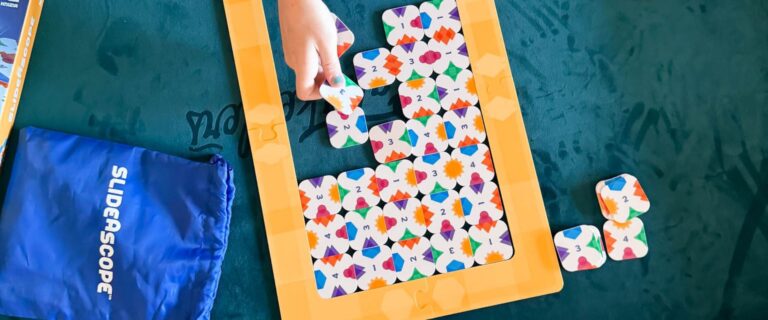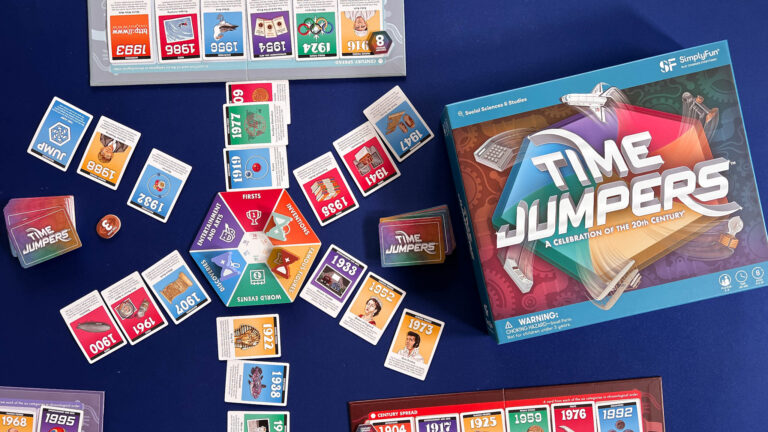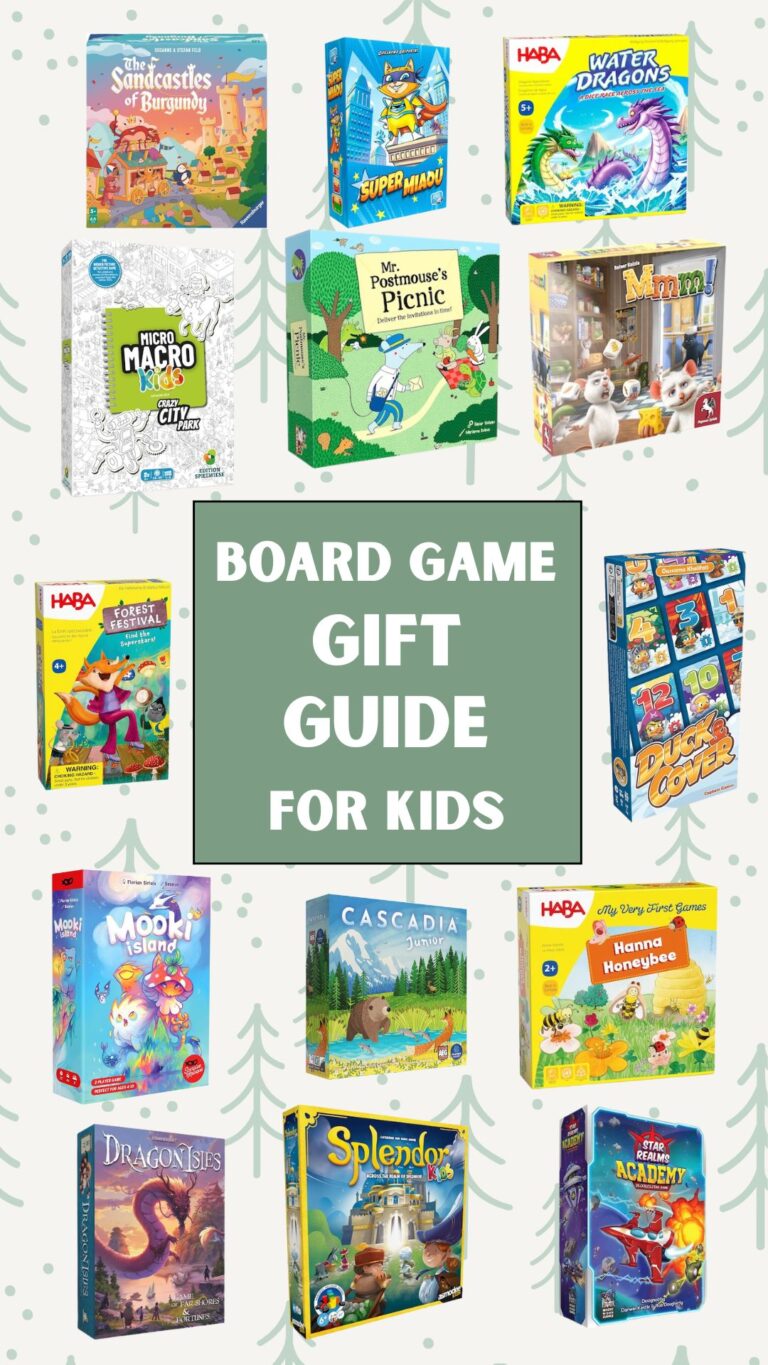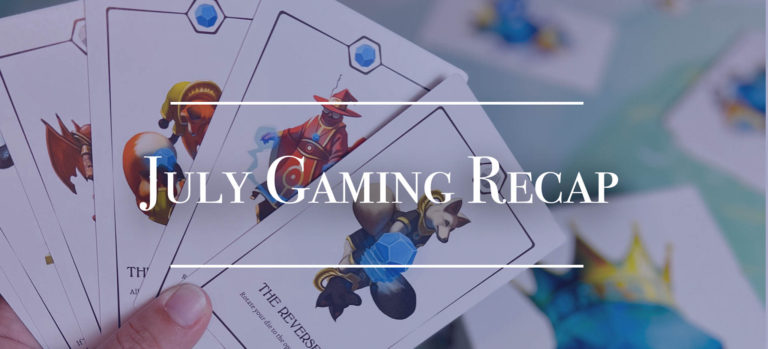Competition is a great thing.
Whether its board games, sports, or even academics, healthy competition helps prepare kids for life’s challenges as they must exert effort for results, stick with things even when it gets tough, and learn to manage both success and failure.
If you have kids yourself, you have probably seen first hand that losing gracefully does not exactly come naturally. And if you watch professional sports, you know losing is not something made suddenly easy in adulthood.
Losing gracefully, as with most things, starts in the home. Teaching respectful sportsmanship in the home is of great importance and board games are a great place to start and continue learning those lessons.
Over the years we’ve used a few different strategies that help our kids and others handle a soar loss that we want to share. Bear in mind that there is no one size fits all approach. With five kids I’ve learned that first hand. What works for some may not work for others and we’re far from experts on the subject, but hopefully you’ll find here some tips, tricks, and support to help your kids handle their next loss a little more gracefully.
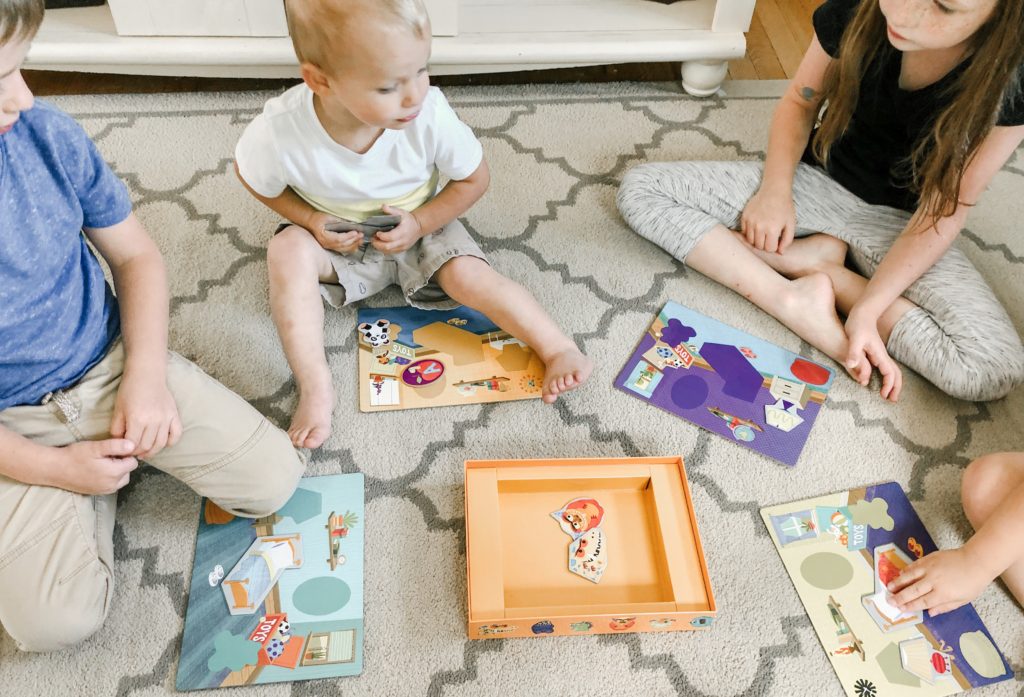
Manage Your Expectations
Whenever talking about kids, I always like to start here. Why? Well, sometimes the biggest issue standing in my way as a parent is my expectations of how my kids are going to act.
If you’re expecting your kids to never throw a fuss when something doesn’t go their way, this may be the first issue.
Stomping away. Tears. Meltdowns. Thrown pieces. Cries of “I’m not playing anymore!” Or “You’re cheating!” I’ve seen it all.
Now let me tell you something freeing, it’s normal.
It is completely human to not like losing. I just lost a highly competitive round of Castles of Burgundy: The Dice Game by one point and let me tell you I was so bummed.
Make sure that when you start your next game with your kid, especially if they’re little, that an emotional loss isn’t something to be annoyed over. They’re trying so hard and want to win so bad. That’s a good thing.
It’s their job to be the kid. It’s our job to be the adult and guide them.
Role Model
Perhaps an obvious one, but it’s very important. Make sure that you are modeling the behavior that you hope to see.
Shake hands after losing. Say “Good Game!” Congratulate the winner. Etc, Etc
Sportscast
This one works well in heading off the emotions of younger players before they really get upset.
If I see that my kid is really struggling with a loss or during a game because something isn’t going their way and perhaps especially when another player (most often a sibling) is doing well, I might sportscast the situation.
Sportscasting is the nonjudgmental verbalization of events. It does not shame the child and it does not supply a solution to the problem they are facing. It simply provides children the space they need to work through their struggle while helping them to focus on their thoughts and emotions.
“You really wanted to roll the color green. You seem frustrated.”
“Oliver, you look upset. You wanted a different card.”
“Losing can be difficult. You were trying so hard.”
What I love about this is that it first and foremost tells our children that we have confidence in their ability to find solutions. We aren’t stepping in to solve problems, but we are showing support for them through their struggles. We are also helping them gain the emotional intelligence they need to navigate through these same experiences in the future.
(Sportscasting works for all struggles, not just games, for more tips and info on sportscasting, click HERE.)
Acknowledge Feelings then Explain
Make sure your child knows that you understand how they are feeling before jumping into why we should or should not do “x” behavior.
I know I’m much more receptive to others when I feel they understand why I’m frustrated. Kids are the same. Depending on age, it’s probably wisest to wait to work through what being a good sport looks like and how we should respond when we lose until after all emotions have settled and calmed down.
Role Play
Role play can be a great way to practice behaviors in a less stressful environment before the child needs to call upon them.
During role play, you can work through and talk about what kind of emotions they think people feel when they lose, when they win, or what it might feel like to have someone get really upset because you won and they did not.
Create Opportunities to Lose
If your kids really struggle with losing, don’t stop playing games with them just to avoid the behavior.
The only way to become a good sport is through lots and lots of practice.
Try playing some cooperative games for a bit if it’s really difficult. The sting of a loss can be lessened if it is shared and here you can role model and sportscast after you lose.
Focus on the Whole Game, Not Just the Result
I try to put a lot of focus on the effort that my kids put into the game rather than just the result.
Yes it is fun to win, but you can’t win every time, however you can try your best every time.
I always like to let my kids know that I appreciated the thought they put into a turn. Or that I saw how they were really evaluating their options. I want them to know that I see them when they are trying hard, doing their best, or improving perhaps upon an earlier game and not just when they win.
Ultimately, the best way to help your chid learn to lose without “losing it” is practice, practice, practice, and grace. Board games are a great tool you can use to help your child learn this important life skill. It takes a lot of work and patience to raise these babies of ours but it’s always worth it.
Good luck! You’ve got this!
* This post contains affiliate links at no cost to you. To read my full disclosure policy click here.*
If You Liked this Post, You May Also Like:
Tips for Gaming with Toddlers
Overcoming Challenges with Magic Labyrinth
8 Great Board Games for Toddlers

